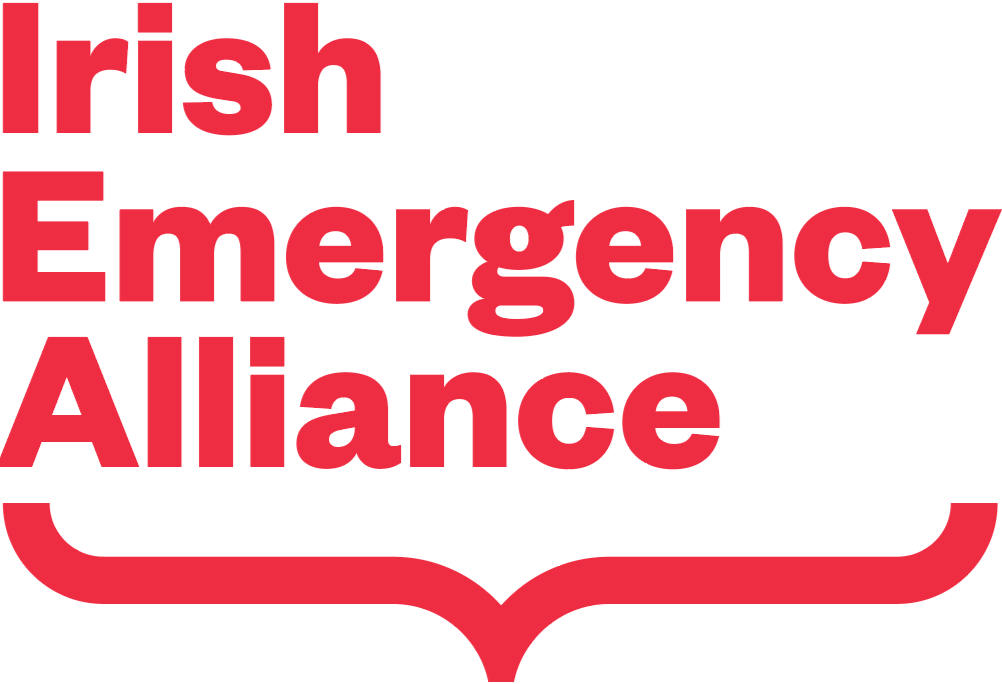After nearly two years of conflict, displacement and restricted humanitarian access, communities across the Middle East are facing a worsening humanitarian crisis. In Gaza, the recent ceasefire offers a fragile pause, amid deep uncertainty. For families who have lost everything, it is a moment to ask: what is there to return to? Homes are gone, hospitals are destroyed, and entire neighbourhoods lie in rubble.
The reality on the ground is catastrophic, people face starvation, destruction of homes, lack of clean water or access to healthcare. The result is not just a crisis; it is a famine and an ongoing assault on the Palestinian people.
A small opening for life-saving humanitarian aid
With the new ceasefire in place, trucks carrying food, medicine and clean water are finally beginning to enter Gaza, but nonetheless there is not enough aid being allowed in. For humanitarian agencies, including members of the Irish Emergency Alliance, this is the first real opportunity in months to reach people on a wider scale.
Our partners on the ground are moving quickly to restock supplies and restart essential programmes, feeding families, supporting hospitals and providing clean water and hygiene items to those displaced. These efforts are lifelines for a population that has endured the unendurable.
And the difference is clear, each time aid reaches people, each small success shows what can be done when there is even the slightest opening.
The reality on the ground
In August, famine was formally confirmed in Gaza. The UN’s food security experts have classified Gaza City and surrounding areas as being in Phase 5: Catastrophic Hunger, the highest possible level.
More than 30% of young children are now acutely malnourished. Families are surviving on scraps of animal feed or contaminated water. Hospitals that once treated thousands are shells of what they were, lacking electricity, fuel or even basic medical supplies.
Tens of thousands have been forced from their homes, crowding into makeshift shelters that are already beyond capacity.
Many are now trying to return, but return to what? To rubble, to uncertainty, to the unknown. The road ahead is unclear, but every act of solidarity helps people take one step forward.
How the Irish Emergency Alliance is responding
Despite the destruction, our members and their local partners are reaching those most in need:
Christian Aid’s local partners in Gaza continue to provide food, life-saving medical care and shelter, as well as support to vulnerable women and girls. ‘
Trócaire is supporting five partners on the ground in Gaza providing vital humanitarian assistance including medical care, nutrition, mental health and protection.
Plan International is protecting women and children from violence and providing essential hygiene supplies.
Oxfam is distributing food vouchers to over 2,000 families and counting, now they can scale up water-trucking thanks to the increased availability of fuel.
ActionAid’s local staff and partners are providing food and cash assistance, psychosocial support, clean water and sanitation; and clothes to those most in need.
Tearfund and other Alliance members are supporting community-based shelters, medical care and food relief where access is possible
World Vision are on the ground in the West Bank and Lebanon, delivering emergency relief, protection for children and young people, psychosocial support, medical supplies, and safe spaces for communities.
Cash assistance remains a vital part of the response, giving families the dignity to purchase food and essentials when local markets reopen.
There is still time to save lives
The ceasefire does not erase what has been lost, but it gives humanitarian agencies a window to act. Every donation helps get food, water, medicine and care to people who have endured famine and war for too long.
The people of Gaza deserve more than survival. They deserve justice, safety and the right to rebuild their lives.
Please give what you can today. Your support can help save lives in Gaza.
